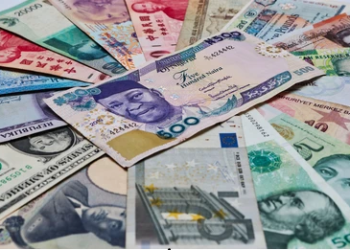In a concerning economic development, the Nigerian Naira started a new low on Monday, opening at N927.19 per dollar in the official market and N1165 per dollar in the parallel market. This marks an 11.39% depreciation, with the domestic currency opening at N927.19 to a dollar, according to data from the Nigerian Autonomous Foreign Exchange Market (NAFEM), where forex is officially traded.
O Friday, intraday high and low recorded further revealed the volatility in the forex market, with N1160/$1 as the high and N701/$1 as the low, indicating a wide spread of N459/$1. The forex turnover at the close of trading was $110.14 million, representing a 4.57% decrease compared to the previous day.
In the parallel forex market, where forex is unofficially sold, the naira weakened further, depreciating by 0.43%, quoted at N1165/$1, while peer-to-peer traders quoted around N1159.62/$1.
Financial experts, alarmed by the Naira’s free fall, are calling on the Central Bank of Nigeria (CBN) to take decisive measures to stabilize the currency. Dr. Biodun Adedipe, the founder and chief consultant of B. Adedipe Associates Limited (BAA Consult), has suggested de-dollarization as a crucial step. He emphasized that the CBN should declare any local transactions in US dollars illegal, including the sale of assets, rent/leases, school fees, and medical bills.
Adedipe further urged the CBN to ensure transparency in dealings with participating banks at the Investors and Exporters (I&E) Window. He proposed de-dollarizing the economy by addressing common practices in sectors like maritime, where government agencies charge local operators in US dollars.
Additionally, Adedipe recommended that the sale of crude oil to local refineries should be conducted in Naira rather than dollars. He urged President Bola Tinubu to engage directly with bank CEOs, seeking their support for market reforms and emphasizing the need for a realistic approach to exchange rates in Nigeria.
As the Naira continues its downward trajectory, these expert recommendations underscore the urgency for strategic measures to stabilize the currency and strengthen the Nigerian economy. The call for de-dollarization reflects a broader concern for the country’s economic resilience in the face of external market pressures.











